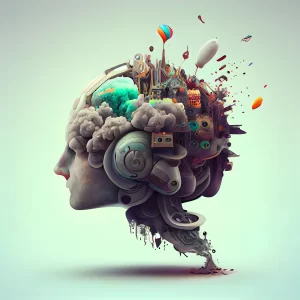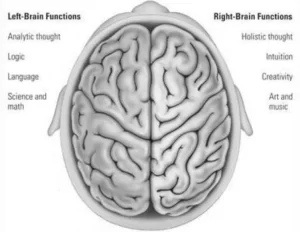If one does not understand a person, one tends to regard him as a fool. — Carl Jung
In this fast-paced world, we all know that intelligence is a big deal, right?
Since childhood, we have all known that intelligence is all about IQ tests, academic accomplishments, and so on.
But guess what? There’s an even better way to figure out.
It is called the ability to understand others.
Understanding others is a gem of a skill that can be honed over time. It’s not just about reading emotions; it’s about anticipating what makes people tick.
In a world that thrives on communication, this type of intelligence is worth its weight in gold.
Emotional Intelligence
The greatest ability in business is to get along with others and influence their actions. — John Hancock
Ever heard of emotional intelligence (EI)? It’s your ability to identify, understand, and manage emotions in yourself and others.
EI is a cornerstone of understanding others, helping you to decode their emotions and communicate effectively.
With EI, you can build connections, navigate social situations, and create a balanced working environment.
Walking in Their Shoes
Empathy is seeing with the eyes of another, listening with the ears of another, and feeling with the heart of another. — Alfred Adler
Walking in their shoes means empathy. Empathy is all about feeling others’ emotions.
It’s a must-have skill for understanding others and enables you to relate to their perspectives and experiences.
With empathy, you can strengthen relationships and become more compassionate.
The Art of Paying Attention
Active listening means giving the speaker your full attention, grasping their message, and responding thoughtfully.
It’s a vital skill for understanding others because it shows you genuinely care about their thoughts and feelings.
Paying attention enhances relationships and helps you address the needs and concerns of others.
Adaptability
Adaptability is your ability to adjust and flourish in new situations or environments.
Understanding others is super important because it allows you to recognize their preferences.
Adaptability empowers you to work effectively with diverse crowds and navigate complex social scenarios.
Self-Awareness
Self-awareness means understanding your emotions, strengths, and weaknesses.
It’s crucial for understanding others, as it helps you acknowledge your limitations.
With self-awareness, you can approach interactions with humility and openness.
The Quest for Knowledge
Curiosity is one of the great secrets of happiness. — Bryant McGill
The quest for knowledge or simply curiosity is the endeavor to learn and explore new ideas.
It’s an awesome skill for understanding others because it pushes you to ask questions and learn more about their values.
Curiosity helps you deepen your understanding of others and forge stronger connections.
Keeping Your Cool

Keeping your cool means patience. It simply means staying calm and composed, even when things get complicated.
It’s essential for understanding others, as it gives them the time and space they need to express themselves thoroughly.
Patience also creates a compassionate and supportive atmosphere, paving the way for better communication and collaboration.
Reading Between the Lines
Always read between the lines for the real words that aren’t even there. — Michelle Sandlin
Reading between the lines includes facial expressions, body language, and tone of voice.
It’s super important for understanding others because it offers insights into their emotions, intentions, and desires.
Being able to decipher nonverbal cues accurately can significantly improve communication and help you respond more effectively to others’ needs.
The bottom line
Unless you really understand others, you can hardly attain your own self-understanding. — Miyamoto Musashi
So, there you have it! Understanding others is a multifaceted skill that includes the following:
- Emotional intelligence
- Empathy
- Active listening
- Adaptability
- Self-awareness
- Curiosity
- Patience
- Nonverbal communication.
- By developing these skills, you’ll be better equipped to connect with others and thrive in various environments.
While traditional intelligence markers like IQ tests and academic achievements offer some insights into a person’s cognitive abilities, that’s not enough to grow personally and professionally.




